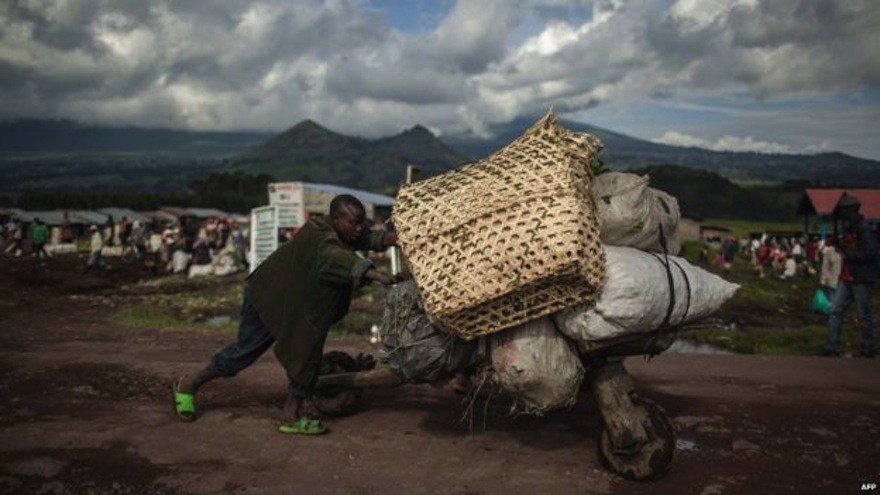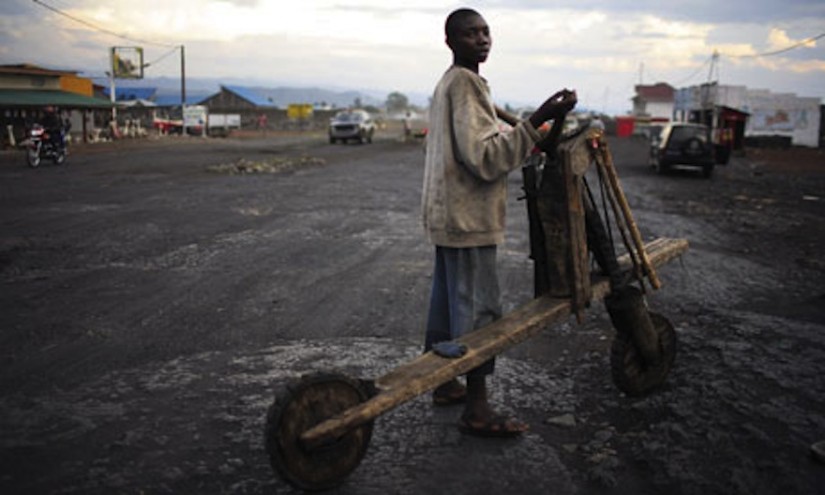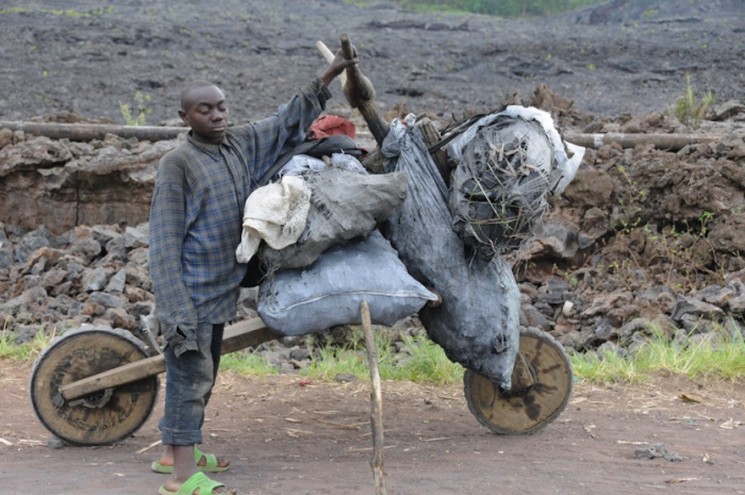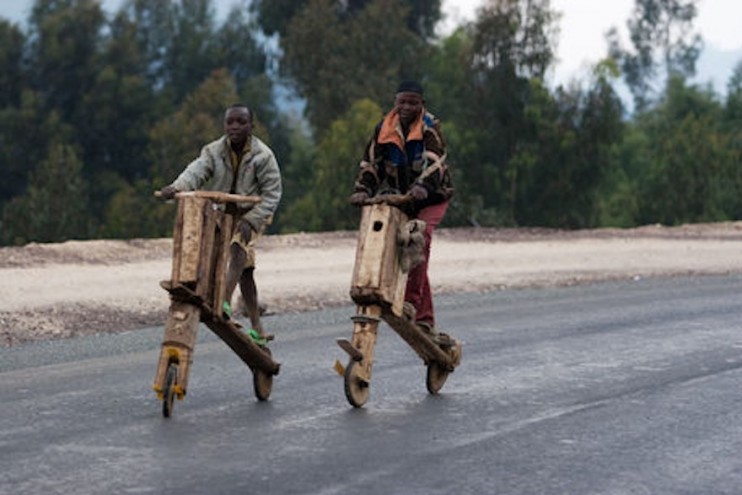In Goma, eastern Congo, wooden scooters are the backbone of the local transportation system. The Congolese ride and push the hand-hewn scooters across hills, hauling towering loads of charcoal, bananas, potatoes and other products and produce.
The low-tech scooters are a steady and fast alternative to wheel barrowing crops and goods around the city and across farms. With no engine, the bike moves by momentum. The riders have to push down and away from the ground, similar to the way skateboarders generate movement.
The chukudus are a reflection of the nature of Congolese life and culture. The local residents of Goma estimate that the chukudus date back to the 1970s, when Congo's economy and government began to buckle under the rule of Mobutu Sese Seko, and people had to improvise on public services such as education and transport.
Today, Sese Seko long gone, the chukudus are essential to transportation in Goma, and crafting chukudu's is a skilled and respected vocation. The craftsmen use machetes and do-it-yourself chisels to turn wood into a mode of transport.
The body is made from eucalyptus wood found abundantly in the area, while the wheels are sculpted from a harder wood that locals call mumba. The wheels are wrapped in tread cut from old tires. The largest chukudus can carry up to 800 kilograms of weight and last two or three years.
The vehicle is also customisable for different types of cargo. To haul firewood, the makers drill a hole in the middle of the sitting deck and insert a stick to hold the firewood in place. Other chukudus are fitted large baskets for various loads.
Despite how low-tech and crude the appearance of the chukudu may be to an outsider, the chukudus are an interesting part of life and culture in Congo and are a source of pride in Goma as they are a part of the local economy. In 2009, President Jospeh Kabila had a monument of the chukudu erected in the centre of Goma. The statue symbolises the hard work of the people in the area.










